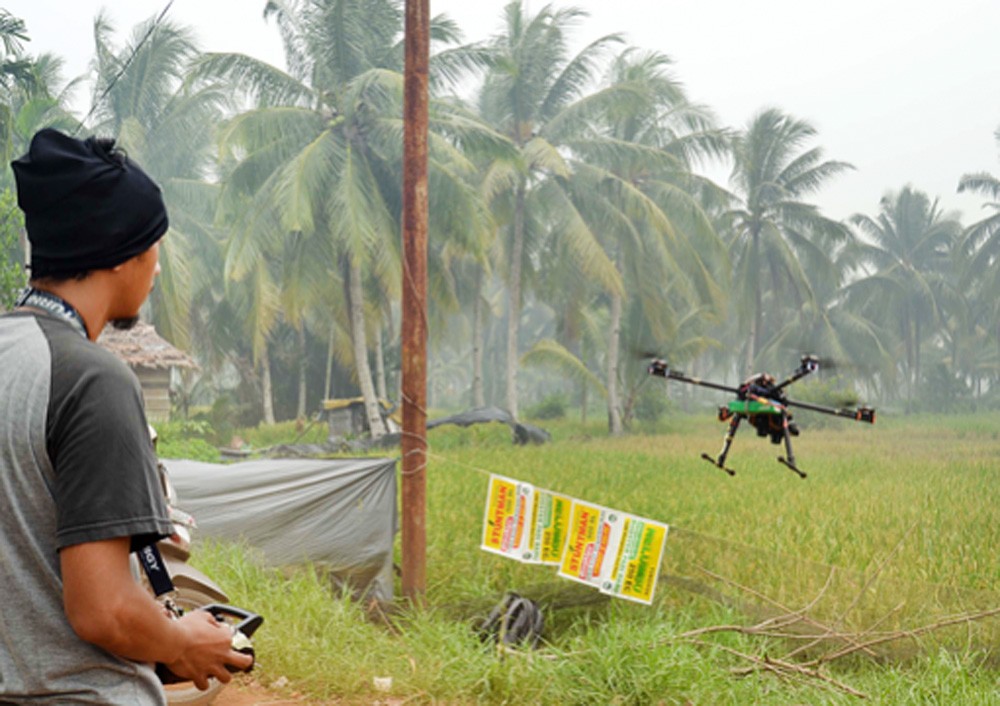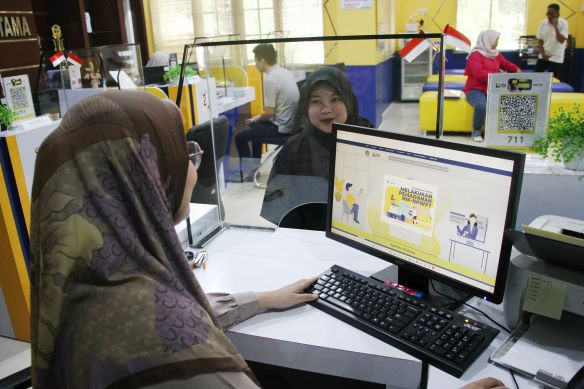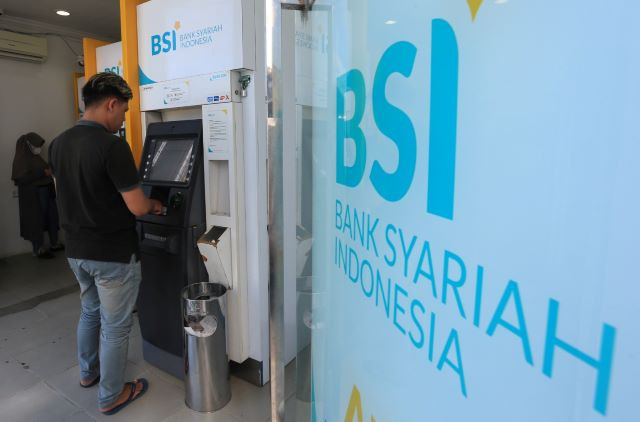Technology startups for agricultural sector
Change Size
 A man operates a quadcopter to detect agricultural disease in a rice field in Sui Itik village, West Kalimantan, on Wednesday. The Swandiri Institute of Pontianak is testing the drone to help local farmers, supported by the UN Development Program. (JP/Severianus Endi)
A man operates a quadcopter to detect agricultural disease in a rice field in Sui Itik village, West Kalimantan, on Wednesday. The Swandiri Institute of Pontianak is testing the drone to help local farmers, supported by the UN Development Program. (JP/Severianus Endi)
T
he Communications and Information Ministry recently launched the 1,000 Digital Startup Movement initiative in cooperation with KIBAR, the country’s technology star-up ecosystem builder in Indonesia.
Through this program, the government wants to realize Indonesia’s potential for the Digital Energy of Asia by 2020 through the creation of 1,000 tech start-ups, which are expected to help overcome problems by utilizing digital technology. This initiative should be appreciated, given the global digitalization trend in all aspects of life. Nonetheless, most of these start-ups have not touched traditional sectors, such as agriculture.
According to the start-up ranking issued by TechInAsia, the top 15 start-ups in Indonesia are still dominated by e-commerce. This indicates that Indonesian private consumption is very high. But if we look at the national agricultural sector, the condition is inversely proportional to feed its population.
In the midst of growing food demand, it is unlikely that the Indonesian agricultural sector will be able to provide sufficient food. Although such start-ups would be identical to those in information technology and digitalization, this does not mean they only dwell in the two realms.
Many lines of business could be developed by start-ups, including agriculture.
The effort to synthesize digital start-ups in agriculture has been made in several countries. In 2010, some Silicon Valley-based programmers initiated a meeting with investors to discuss how a start-up and investors could benefit agriculture, which later gave birth to the term Agriculture 2.0.
Another country that has continued to develop its agricultural start-ups is India. Narendra Modi’s government is currently trying to increase investment in the agricultural sector, which is able to employ half of India’s workforce.
For Indonesia, based on the purpose of the movement and definition of a start-up itself, the role of an agricultural start-up could be crucial.
Based on the 2013 Agriculture Census, the national agricultural industry is still dominated by the home industry, with a total of about 26.14 million households, while the number of agricultural companies totaled only 4,165.
This means that the majority of Indonesian farmers are working on a small scale with undeveloped technology and limited access to education and information. If start-ups can work well in agriculture, they will not only grow new companies but also strengthen millions of small farmers in Indonesia.
Furthermore, the census also showed a decreasing number of industrial farming households compared to the 2003 census. Indonesia has lost about 5 million farmers due a lack of support and low profits.
Nonetheless, the current hype to reinforce agriculture has been taken by some start-ups, such as I-Grow and Limakilo, which empower local farmers to eliminate the role of brokers while providing professional management. In software development, names like Matadaun, PEKA and Duty Plant have been established to assist farmers with planting, financial management and agricultural knowledge.
This could be a new hope since they bring science, digital technology, as well as access to information and global networks for the local farmers to utilize and compete globally.
A few things need to be undertaken, starting with building awareness and providing knowledge about the needs of start-up farming. It is important for founders, investors and public officials to understand the necessities of agricultural start-ups.
This is essential given the current start-up trend, which is dominated by the service sector and sales.
Second, comprehensive policy support, ranging from licensing issues, access to capital and incentives, is needed. Licensing facilities are in line with the government’s goal to improve its ranking in ease of doing business.
Access to capital is not just about access to banks but also the ease of investment. A government-established incubator is a good starting point because it facilitates access to capital and advocates for policy support.
Last but not least is the approach to farmers and local administrations. Literacy technology, particularly in IT for farmers, is very important. Without it, they cannot use the services and software provided by start-ups.
Local government support is also crucial since they are dealing with farmers and the locus of agriculture. For example, cooperation between start-ups and local administrations to arrange village funds to develop agricultural products and empower farmers. Without involving farmers and local governments, agricultural start-ups will only be a discourse at the urban level.
_____________________________
The writer works at the Center of Macroeconomic Policy in the Finance Ministry’s Fiscal Policy Agency.









